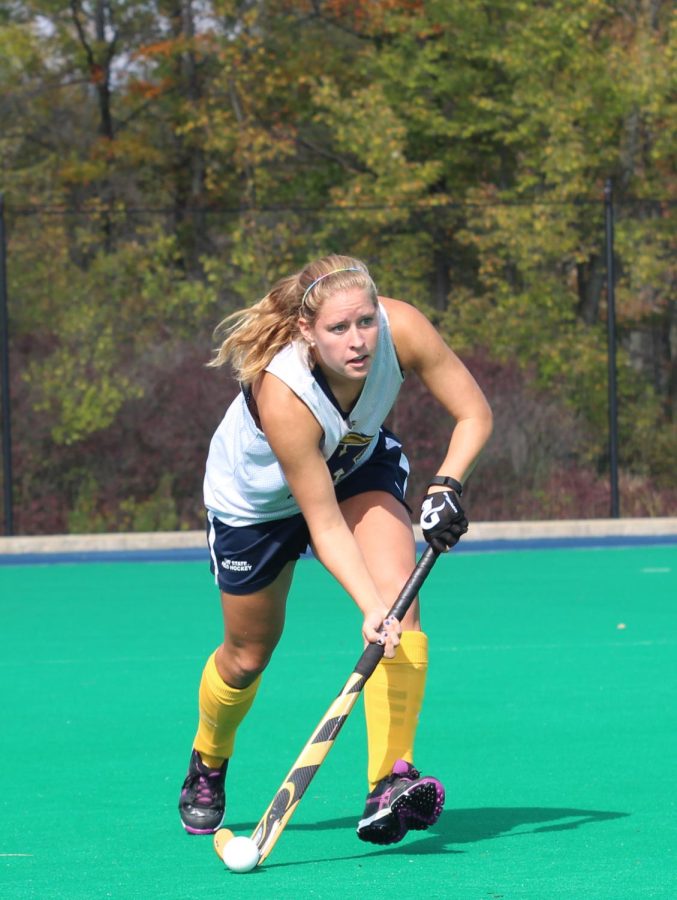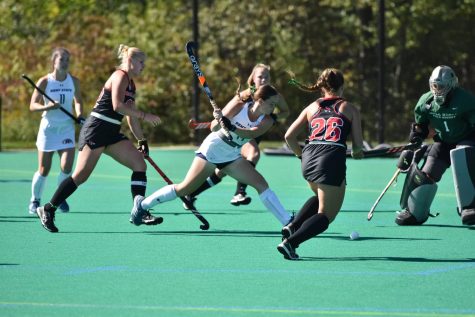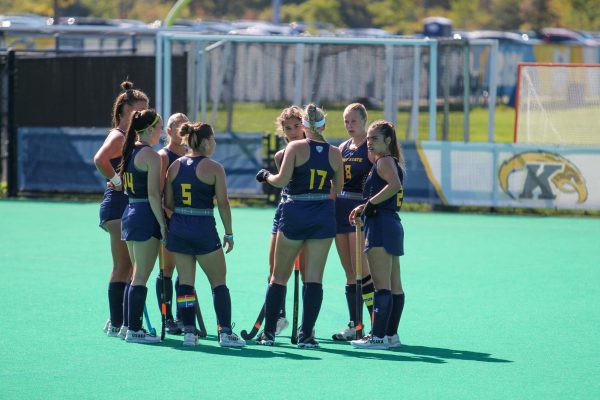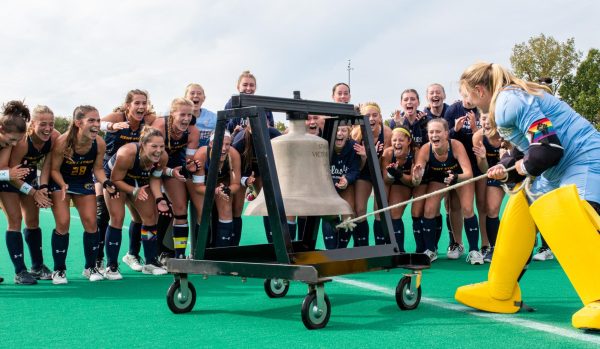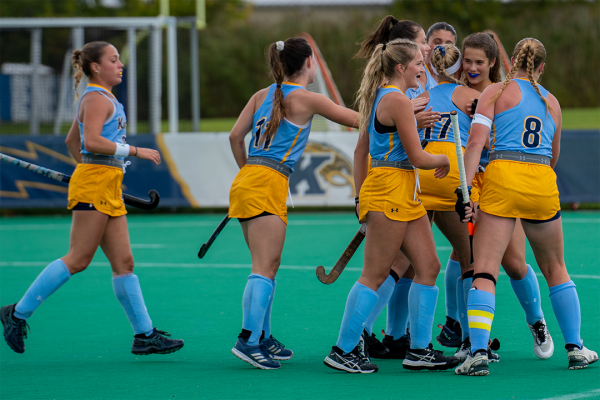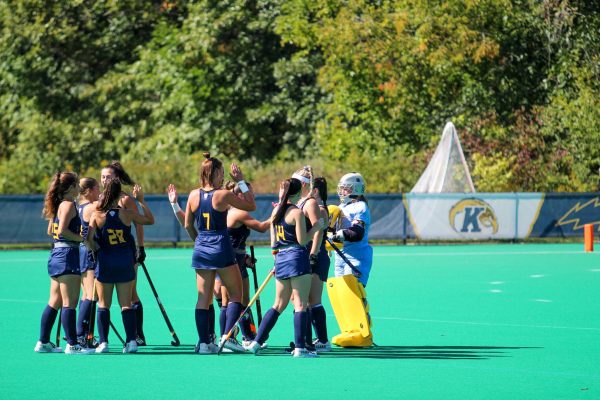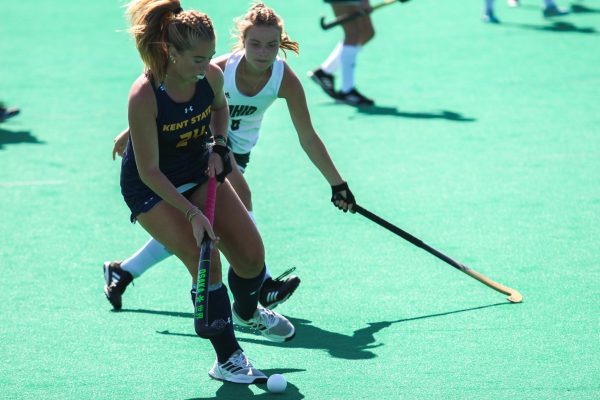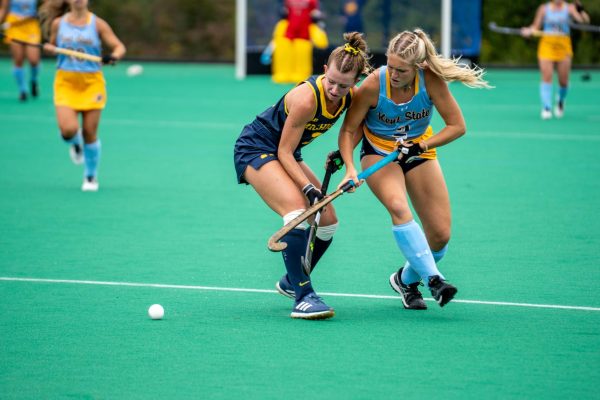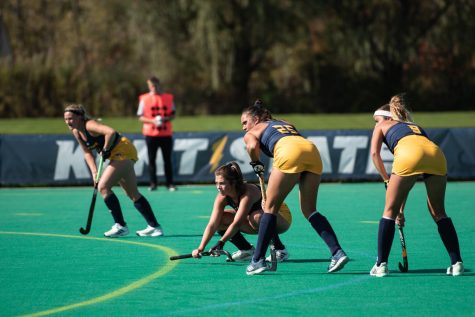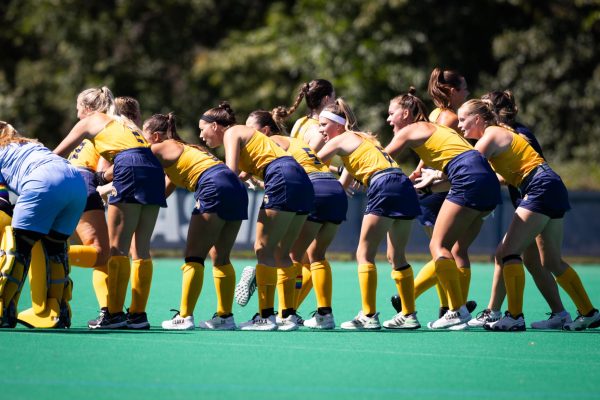23 girls, 10 countries, one goal
October 7, 2015
A team is a group of individuals coming together for a main purpose. These individuals set their differences aside and put all their focus into achieving one common goal.
Out of the 23 girls on the Kent State field hockey team, nine of them are international players that come from places across the globe, ranging from Canada to New Zealand.
Coach Kathleen Wiler says recruiting international players began when Kerry DeVries became the head coach in 1997.
“Traditionally, before I was the head coach here, we had a really heavy influence of Dutch players that would stay for a year maybe two, then leave,” Wiler said. “When I became head coach my philosophy was that I would like them to stay for four years. I think it is really tough on team morale if they come and go.”
Wiler says that having international players contributing in strong roles is not uncommon among teams in the NCAA.
“If you look at some of the top teams in the nation they all carry a few, if not a ton, of international players,” Wiler said. “The recruiting agency has become very big with foreign athletes.”
Moving to a new country and adapting to a new school can be challenging and adjusting to a new culture can be somewhat difficult for new international athletes.
Sophomore Ines Delpech is from Tandil, Argentina, and said the transition overwhelmed her when she first arrived at Kent State.
“I was really scared and really nervous,” Delpech said. “I remember the first day of classes I cried because I was so overwhelmed. The routine is completely different here. We don’t practice every day at home and we don’t go to class every day.”
Delpech says college in the United States is different from college in Argentina.
“University here is completely different (than) at home,” Delpech said. “We don’t live in the same place where we go to class. Classes are really different. When I got here the first day I was like, ‘Oh, I won’t be able to get used to it’, but as the days go by you find that everyone is willing to help you.”
Although Tandil, Argentina is 5,598 miles from Kent, Delpech says she is still able to talk to her family every day because Tandil’s time is only an hour ahead of Kent’s.
However, for some international players, it is not as easy to communicate with family and friends from home.
Susanne Felder is a senior from Berlin, Germany. Felder traveled 4,215 miles across the Atlantic Ocean to Kent in 2012 and knows all about the struggles that come with adapting to a new culture in the U.S.
“At first it was really, really hard,” Felder said. “I came into the season late because I had a surgery at home so I was struggling with everything, but my teammates helped a lot.”
Berlin is six hours ahead of Kent and Felder says it can be difficult trying to talk with her family and friends on a regular basis.
“Right now it is a little bit hard because of the time difference,” Felder said. “We are traveling on the weekends and I have night class so I barely get to Skype with them.”
Unlike Delpech, Felder says she did not attend a bilingual school and spoke some English when she first arrived at Kent.
“It was really hard to adjust when people talked— especially in groups,” Felder said. “I didn’t know who to follow, or the moment I finally knew something to answer to that they already moved on.”
Felder says she loves that her teammates come from so many different backgrounds and it makes playing the game a lot more fun.
“I love it, especially because we have so many internationals,” Felder said. “Everyone comes in with different backgrounds and everyone plays different systems on the field. You get to learn new things because they did it different from what you did at home.”
Delpech and Felder are two of nine other international players on the team. These girls come from all over the world to not just to play the sport they love, but to learn how to relate to people that come from different cultures.
“It is a really good lesson on how to relate to people,” Wiler said. “Not just of our own kind, but all kinds. They really do learn to have harmony with each other.”
Zac Sommer is a sports reporter for The Kent Stater. Contact him at [email protected].


